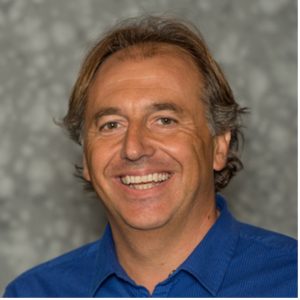BYONTEK is proud to present Dr. Bruno Basso at the next Aapresid Congress.

Dr. Bruno Basso (MSU Foundation Professor / John A. Hannah Distinguished Professor) is a Professor of Earth and Environmental Sciences integrating diverse disciplines such as biophysics, climatology, hydrology, genetics, agronomy and soil science to understand the spatial and temporal variabilities of crop yield and environmental outcomes in agricultural systems.
Focused on sustainable row crop production, Dr. Basso leverages advanced UAV technology and predictive process-based models to quantify the current and future impact of climate, soil, genetics, and management on crop yield and ecosystem services. He is also a faculty member at the W.K. Kellogg Biological Station at MSU (Michigan State University).
Originally from Italy, Bruno Basso received his B.Sc. degree in Agricultural Sciences from Federico II University of Naples (Italy) and his Ph.D. in Crop and Soil Sciences from Michigan State University. After earning his Ph.D., Basso spent 12 years as a professor at the University of Basilicata, Italy, before returning to MSU in 2012
Basso’s innovative and collaborative research has earned him several key awards and appointments, including an appointment as a fellow of the Soil Science Society of America and the American Society of Agronomy. He also received an MSU Innovation of the Year award in 2016, which led to the commercialization of some aspects of his research and the founding of a start-up company called CiBO Technologies, which recently received a Forbes Impact Award.
Dr. Basso is currently leading a USDA-NIFA-funded project on digital agriculture and implementation of climate-water-nutrient smart technologies and is also collaborating with the Food and Agriculture Organization of the United Nations on developing a crop yield forecasting system for the country of Tanzania. He chairs the Climatology and Modeling Division of the American Society of Agronomy.
His research is in the area of sustainable agriculture. His approach is to integrate diverse disciplines such as biophysics, climatology, hydrology, genetics, agronomy and soil science to understand agricultural systems as a whole and improve decision-making across a broad spectrum of stakeholders, from the smallholder farmer in the developing world to the industrial producer and policy maker at all scales.
Within the framework of the 31st Aapresid Congress, we will have the opportunity to talk with Dr. Basso, who is mainly interested in the ecosystem of row crop production systems.
Chemically intensive production requirements have raised serious concerns about the sustainability of these systems. Of particular importance is the ability to provide sustainable ecosystem services (crop production, carbon sequestration and nitrogen conservation, in particular).
Key aspects of their approach include the following:
- Developing and applying advanced cropping system models to predict the impact of weather, soil and management on short- and long-term yield, nutrient uptake, water use efficiency and environmental outcomes.
- Exploring the advances and limitations of different aerial and space-based platforms for obtaining remotely sensed data and linking this information with algorithms to understand spatial and temporal uptake of nutrients and water by plants and integrating this information into quantitative models.
- Assess the impact of climate variability and change on agricultural production systems.
- Understanding the spatial and temporal variability aspects of the soil-plant-atmosphere system is at the core of his research and one of the main objectives is to develop new technologies and transfer knowledge to farmers to manage this variability better and quantify the risk associated with the decisions they make to optimize economic and environmental outcomes.
Byontek as a member of Aapresid and committed to providing the scientific and technical support essential for the new carbon agriculture, transcendent to mitigate climate change and at the same time bring tangible benefits to farmers, businesses and society, invites everyone to participate in this experience of enormous scientific and technological impact in a space that we are proud to belong.
Dr. Basso will share his experience and innovative vision in digital systems to reconcile the productivity and sustainability of agricultural systems.
The talk will address how new technologies can help farmers make better decisions while improving soil health, reducing greenhouse gas emissions and nutrient losses to the environment. The presentation will also address the importance of carbon markets and issues related to tracking and reporting carbon dioxide emission reductions and soil carbon sequestration requirements by food companies to improve the carbon neutrality of their supply chain.
